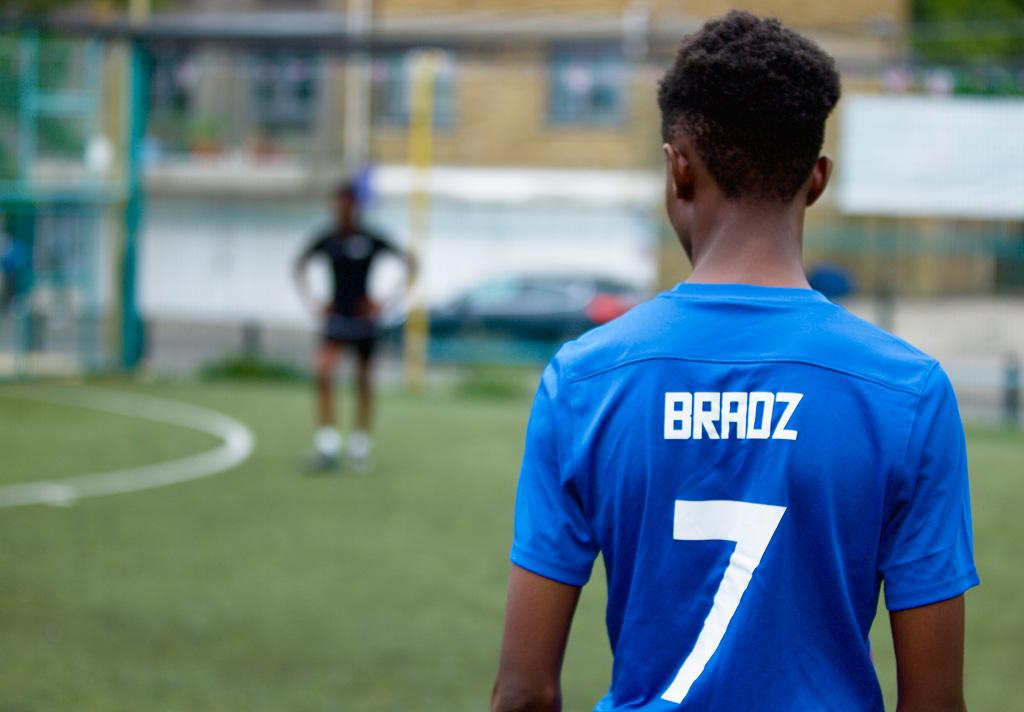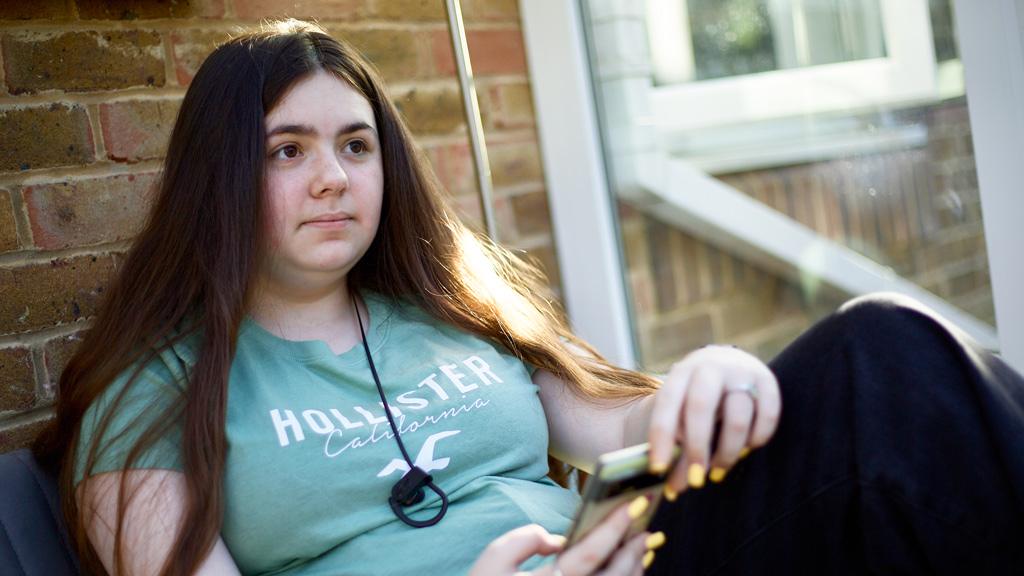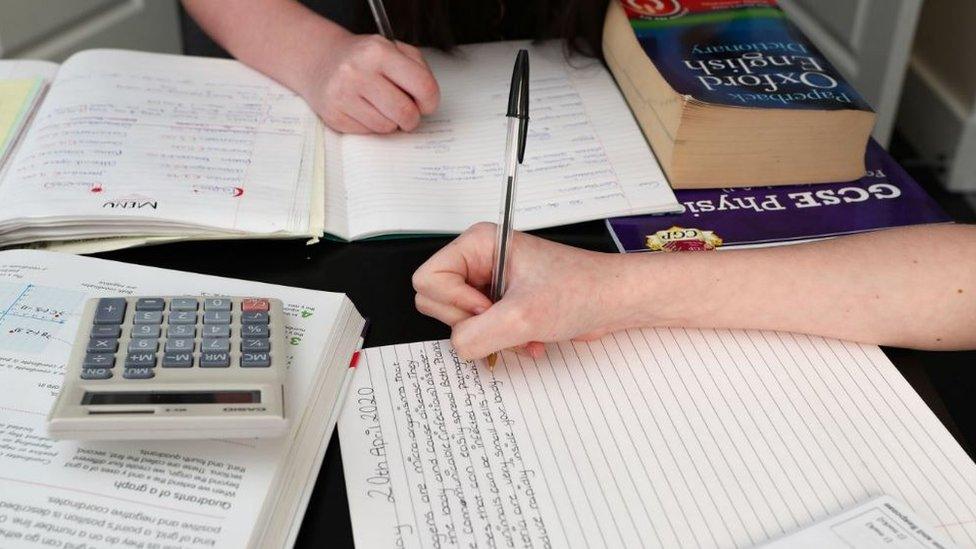The school fines lottery for parents with absent children
- Published

Parents in England whose children miss school face harsher penalties depending on where they live, a BBC Panorama investigation has found.
Fines, which begin at £60, but rise if not paid promptly, totalled more than £8.6m in the past school year.
But some local councils told us no penalties had been issued, while other authorities handed out thousands.
Even when differences in population are taken into account, there remain disparities in the number of fines.
In the past school year, Luton had the highest rate - 97 fines per 1,000 pupils. Bolton was not far behind at 89 per 1,000. And yet, in response to a BBC Freedom of Information request, Warrington and City of London councils said they had issued no penalties at all.
When local authorities - working with schools - decide to issue fines to parents whose children have missed significant amounts of education, a child's reason for being absent is supposed to be taken into account. Usually, fines only come at the end of a process of trying to engage with families. If not paid, parents could be prosecuted.
Children's Commissioner for England, Rachel de Souza, says children and their parents - especially those with special educational needs and disabilities (Send) - must have "nothing to fear" when seeking support for their particular reasons for being absent.
Claire Huddart - principal of Horizon Community College, a large secondary school in Barnsley - has a five-strong attendance team, looking into the complex reasons why pupils are missing from school. She says fines are very much a last resort.
"If we are working closely with a family and you put in place a fine, that breaks the relationship between home and school. It's so important we keep it positive."
Across England, some ongoing cases of persistent absence are a response to the disruption caused by Covid. But many are also because of complex physical or mental health needs - or added challenges beyond a child's control.
In those instances, financial penalties are neither appropriate nor contemplated.
We spoke to two children who find school challenging, but are being supported to help them attend. Their families were not fined.

"I was just finding different ways to cope with my grief over my dad," says Bradley
Bradley has navigated a tough few years. It started with the first lockdown when learning moved online.
"My connection with school, it just departed. I stopped caring. I stopped liking school and I just forgot about it," says the 15-year-old.
But what followed next was devastating. In summer 2021, his dad died from a sudden illness. At the start of the new academic year, Bradley was absent from school.
"I was just finding different ways to cope with my grief over my dad," he says. "My school life, when all these things were going on, was very bad."
He has put his feelings about the loss of his father, and how it affected him, into the lyrics of a rap.
"Mum wishing that she gets her old son back / But I ain't got no-one to keep me straight and I lost the man that did that."
Head of year teacher, Luke Kirkham, kept reaching out to Bradley to encourage him into school. A few weeks later, he began going in, returning to attending almost every day by the end of the summer term.
Bradley was allowed a time-out card, a strategy some schools use to let pupils leave the classroom a few times a day if they feel overwhelmed.

Mentoring through football: "They balanced one thing I needed with the one thing I love," says Bradley
Another big help has been the mentoring support Bradley has received from a charity called Football Beyond Borders. The teenager says it has helped him talk about his feelings rather than bottle them up - all against the backdrop of playing football.
"I think the reason it helped me so much was because they balanced one thing I needed with the one thing I love," says Bradley.
The combined support at school helped him reach the end of the 2021-22 school year having attended almost every day after the initial absence.
This autumn term, he has missed some classes as the family marked the first anniversary of his dad's death - but is now back in school and working towards his GCSEs.
Even when a school tries to do all it can, the system doesn't work for everyone.
Abbie, 13, is autistic and has Attention Deficit Hyperactivity Disorder (ADHD) - which means she has additional needs. She missed more than half of the 2021-22 school year - at least 100 days.
In her primary school, Abbie flourished - she was confident enough to sing and take part in shows. And even when she moved on to a grammar school aged 11, because of the pandemic restrictions, school days were relatively calm. Pupils were taught in the same classroom all day and movement around buildings was carefully controlled - with social distancing between "bubbles" of pupils.
But when restrictions eased in autumn 2021, there was a return to crowded corridors and break times. For Abbie it created constant overload - because she is more sensitive to sound and touch than other teenagers.

"I didn't know what a burnout was until I was told I was in one," says Abbie
"I started to find it really challenging, because it was all these different sensory things that were all of these people talking."
As term went on, she became more distressed and anxious - sometimes she could barely sleep. Her parents - who are both teachers - say the school tried to help, but nothing worked. In January this year, Abbie's doctor diagnosed her with autistic burnout.
"I was kind of confused and frustrated at myself because I didn't know why I couldn't get into school like everybody else," Abbie says.
"I didn't know what a burnout was until I was told I was in one."
Abbie has an education health care plan, agreed with the local authority, which sets out what support she needs and is entitled to. The council is now paying for her to start this academic year at a smaller private school.
At the moment she tries to attend one lesson a day - for an hour. The hope is she can build up the number of hours she can tolerate.
Abbie's challenges aren't unique, there are many other children with additional needs, who need support to make school manageable for them.
Analysis of government statistics by the National Autistic Society reveals that 25% of autistic pupils in mainstream schools missed more than 10% of school in the past school year.

Covid lockdowns have left a legacy of persistent absence among some students, and schools are under pressure to get them back through the gates. Branwen Jeffreys investigates.
Watch now on BBC iPlayer (UK Only)
Also on BBC One in England at 19:30 on Friday 30 September (20:00 BBC One Northern Ireland, 23:00 BBC Two Wales and on Sunday 2 October at 23:30 BBC One Scotland).

On the issue of overall pupils' attendance, Children's Commissioner, Rachel de Souza, has told Panorama it should be the "top priority" in education for Liz Truss's government and she would like to see a whatever-it-takes approach to meeting children's needs.
"I think it's important that in any drive to attendance, we make it really clear that no individual is being judged," says Ms de Souza.
"I do understand that if you've felt the system has failed you, parents could feel upset about it. We have to overcome that."
It's a view echoed by Claire Huddart at Horizon Community College in Barnsley. Each day, her attendance team follows up on children absent from school with phone calls - and then, if there is no response, home visits.
Panorama saw them deal with a wide range of issues, some too sensitive to film because of the need to protect children - others more common like a mum trying to help her daughter overcome severe school anxiety.
The college can offer some pupils counselling or financial support for things which can be barriers to attendance - such as bus fares and the cost of uniforms.
At the start of this term, when it became cheaper to go on holiday, 50 families took children out of the school - some for several weeks. In each case, Mrs Huddart has to weigh up family circumstances, and whether issuing a fine would prevent unauthorised absences from happening again.

Which councils hand out the most fines?
Top five fining local authority areas per 1,000 pupils in England for academic year 2021/2022:
Luton Borough Council - 3,716 fines - 97 per 1,000 pupils
Bolton Council - 4,348 fines - 89 per 1,000 pupils
Oldham Council - 3,053 fines - 72 per 1,000 pupils
Salford City Council - 2,222 fines - 63 per 1,000 pupils
South Tyneside Council - 1,282 fines - 62 per 1,000 pupils
Some councils provided the total number of fines issued, others numbers of fines paid so far.
Warrington and City of London councils issued no fines at all.
Hammersmith & Fulham Council issued just one fine.
Source: Freedom of Information request - 141 councils out of 152 provided data

Almost 1.7 million children in England missed at least 10% of classes in the 2021 autumn term, according to the latest official statistics - significantly higher than the pre-pandemic absence rate.
The Education Secretary for England, Kit Malthouse, has said getting attendance right is one of his priorities.
This autumn, new guidelines for schools and councils across England have been issued, with the hope of a more consistent approach to improving attendance. The government has also put forward draft legislation, currently going through Parliament, which would let it set national standards for when fines should be used.
We asked Mrs Huddart how much it mattered to her, as head of a school, to have discretion. Keeping positive relationships with children and parents was key, she said.
"We know our families and that's important. We know what that fine could do to that family."
Follow Panorama on Twitter, external
Related topics
- Published7 June 2022
- Published23 September 2022
